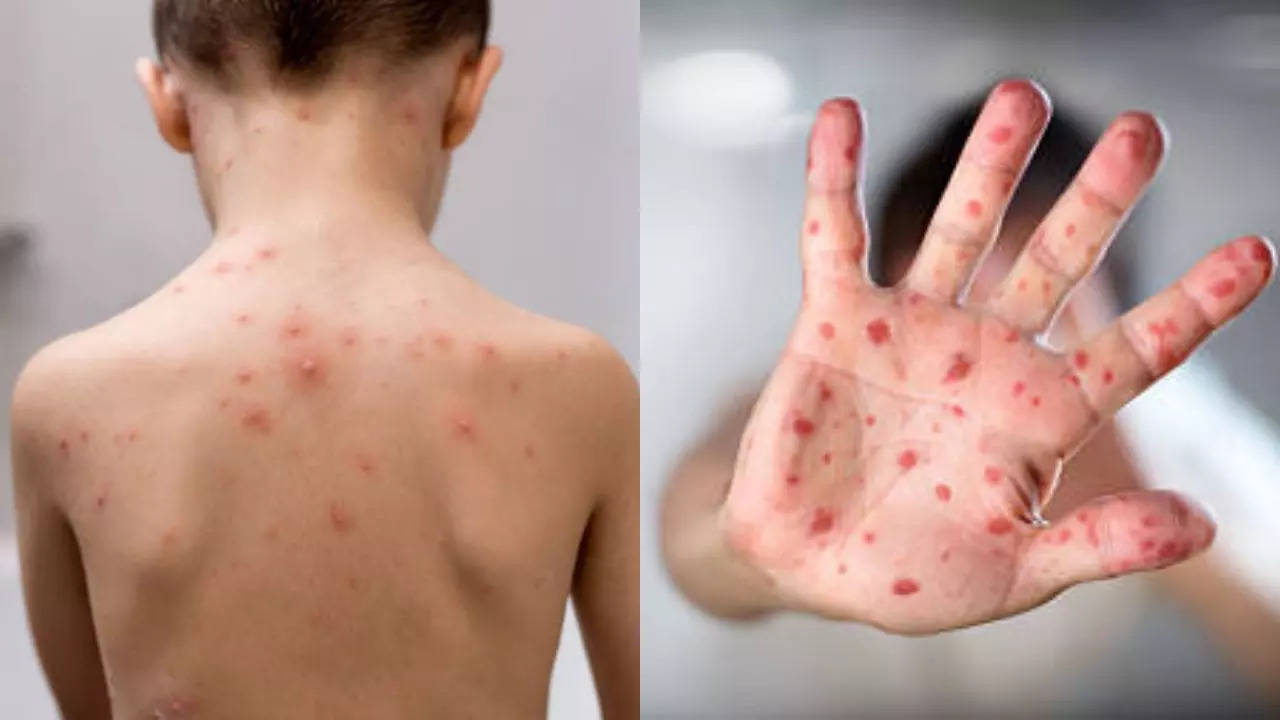Contents
-
news
-
Health
Can you get chickenpox as an adult? Know the risk factors and symptoms of this highly infectious virus
The varicella-zoster virus can cause chickenpox – a highly contagious disease that causes blisters and rashes all over your body. According to experts, the varicella vaccine provides strong protection against chickenpox. However, if you are not immune, you can catch it through direct contact with an infected person or through respiratory droplets when they cough or sneeze. Read on to know some common symptoms and complications.

After your body fights the infection, the virus remains hidden in your nerve cells and can reactivate as shingles later in life.
Chickenpox – also known as varicella-zoster, is a highly contagious virus that causes red rashes that blister and then scab. It is spread through bodily fluids and physical contact with an infected person or by breathing in droplets released when they sneeze or cough. While most cases of chickenpox are mild – newborns, pregnant women, and people with weakened immune systems may experience more severe illness.
Before the first vaccine against chickenpox became available in 1995, almost everyone had chickenpox as a baby or toddler. But since the late 1990s, chickenpox rates have declined by about 90 percent. According to statistics, most children today are vaccinated against chickenpox as part of their routine vaccination schedule.
What are the signs and symptoms of chickenpox?
According to experts, the symptoms of chickenpox progress in several stages – most develop over a week or ten days. Doctors say you may experience flu-like symptoms within a week of exposure, however, early symptoms may include:
- Tiredness
- high fever
- Headache
- loss of appetite
- runny nose
- sore throat
- stomach ache
- rashes and blisters all over the body
- red bumps
- crust
What causes chickenpox?
While the varicella-zoster virus causes chickenpox – you can get it from touching an infected person’s rash, breathing in respiratory droplets from their cough or sneeze, or touching surfaces contaminated with the virus and then touching your mouth or eyes. Is.
While your body can fight the infection, the virus remains hidden in your nerve cells and can reactivate later in life in the form of shingles – a painful rash that usually develops on one side of the body.
According to doctors, a vaccine for shingles, known as Shingrix, is available for people over the age of 50. Doctors recommend taking the vaccine in two doses at an interval of 2-6 months and it is 80-90 percent effective.
How can you prevent chickenpox?,
Doctors say that the best way to avoid and prevent this virus is vaccination. Two full doses help your body fight chickenpox and reduce the risk of spreading it to others. However, even though varicella is highly effective, you can still get a mild form of the disease even if you get vaccinated. The rash is usually minor, with no blisters, but still contagious.
When caring for someone with chickenpox, you should follow some precautions to avoid contracting or spreading the virus:
- practice good hand washing
- Do not touch the rash or blister without gloves
- Disinfect surfaces you commonly touch
- Avoid sharing personal items like towels, utensils and bedding
- wear a mask
What is Complications caused by chickenpox,
Even though it is not common, chickenpox can cause serious complications such as:
- Arthritis
- skin infection
- brain problems
- dehydration
- pneumonia
- Reye syndrome
- sepsis
- Thrombocytopenia
Get the latest news live on Times Now with breaking news and top headlines from around the world.


